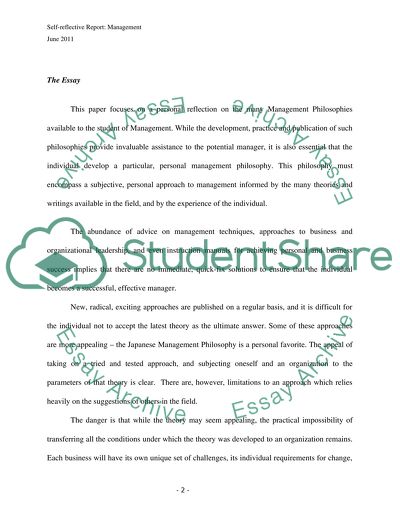Cite this document
(A Personal Management Philosophy on Organizational Design Assignment Example | Topics and Well Written Essays - 1750 words, n.d.)
A Personal Management Philosophy on Organizational Design Assignment Example | Topics and Well Written Essays - 1750 words. https://studentshare.org/visual-arts-film-studies/1426074-a-personal-management-philosophy-on-organizational-design
A Personal Management Philosophy on Organizational Design Assignment Example | Topics and Well Written Essays - 1750 words. https://studentshare.org/visual-arts-film-studies/1426074-a-personal-management-philosophy-on-organizational-design
(A Personal Management Philosophy on Organizational Design Assignment Example | Topics and Well Written Essays - 1750 Words)
A Personal Management Philosophy on Organizational Design Assignment Example | Topics and Well Written Essays - 1750 Words. https://studentshare.org/visual-arts-film-studies/1426074-a-personal-management-philosophy-on-organizational-design.
A Personal Management Philosophy on Organizational Design Assignment Example | Topics and Well Written Essays - 1750 Words. https://studentshare.org/visual-arts-film-studies/1426074-a-personal-management-philosophy-on-organizational-design.
“A Personal Management Philosophy on Organizational Design Assignment Example | Topics and Well Written Essays - 1750 Words”. https://studentshare.org/visual-arts-film-studies/1426074-a-personal-management-philosophy-on-organizational-design.


